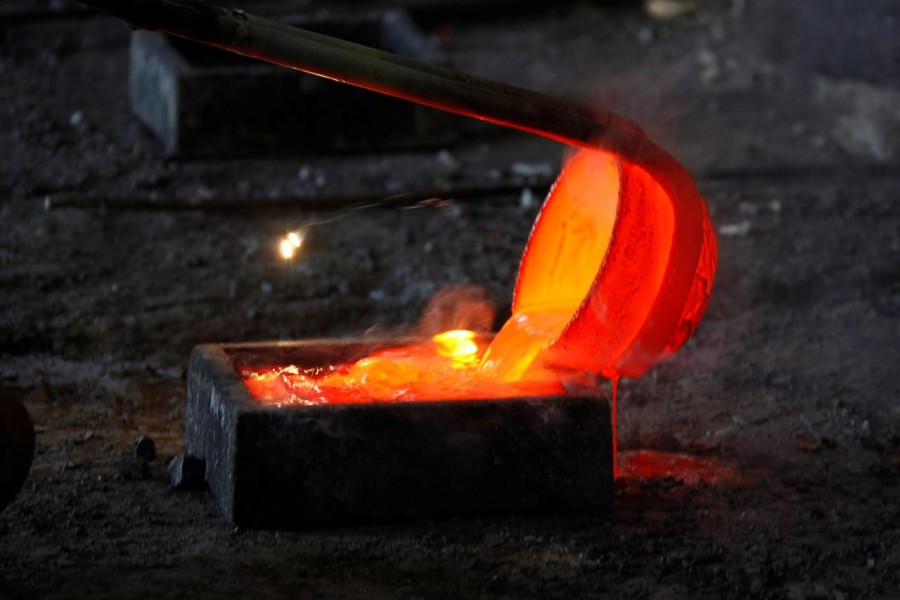US companies are years away from challenging Chinese dominance of rare earth minerals due to a lack of domestic processing facilities, ensuring the Asian nation will maintain its near-monopoly on refining and powerful leverage in trade talks.
In an escalation of the trade conflict between the two countries, state media on Wednesday implied China could restrict rare earth sales to the United States, stoking fears about Beijing’s role as a supplier.
Although, according to US Geological Survey data, China contains only a third of the world’s rare earth reserves, it accounts for 80 per cent of US imports of the group of 17 minerals used in military equipment and high-tech consumer electronics.
That is largely due to China’s domination in processing. Efforts to build rare earth processing plants in the United States are still in the early stages and lack unified support from Congress and the administration of US President Donald Trump.
At least three US-based companies have rare earth processing plants under construction or in the planning stages.
One is set to open next year at Mountain Pass mine, California, when it will become the sole operating rare earth processor in the United States. It is set to produce about 5,000 tonnes of two popular types of rare earth annually, according to a source familiar with the matter.
The other two are not expected to open until 2022 at the earliest.
“It would be important for the U.S., and the world, to have these minerals processed in a place outside of China,” said Jon Blumenthal, chief executive of privately-held Blue Line Corp, which earlier this month signed a memorandum of understanding to build a rare earth processing facility in Texas with Australian-based Lynas Corp.
Blumenthal declined to say how much the project will cost or forecast its processing capability. Blue Line processes small-batch rare earths for use in the oil refining industry currently, and the Lynas venture would be its largest project to date, though Blumenthal said it would be at least three years before it would open.
Meanwhile, Texas Mineral Resources Corp is pushing to develop the Round Top rare earth deposit in a remote corner of the state’s western edge. The project, which will cost more than $300 million to develop, would involve an on-site mine and processing facility that would annually process about 7.3 million tonnes of ore and produce about 3,325 tonnes of rare earths.
The company has seen its stock jump 68 per cent in the past month, although the Round Top facility is not slated to open until 2022 at the earliest.
The company is heavily lobbying the Trump administration to require US defence contractors to use domestically-sourced rare earths, rather than source them from China, according to Reuters news agency.
“The U.S. can’t tell Apple or other industrial companies what to do, but they can tell companies how to manufacture products for government agencies to use,” Anthony Marchese, Texas Mineral Resources’ chairman, told Reuters. “That, in my opinion, would stimulate private capital to fund domestic projects.”
The United States has excluded Chinese rare earth imports from recent tariff hikes, along with some other critical Chinese minerals.
China, however, has raised tariffs on imports of US rare earth metal ores from 10 per cent to 25 per cent, making it less economical to process the material in China.
Privately-held MP Materials, which owns the Mountain Pass mine and ships the roughly 50,000 tonnes of rare earth concentrate it extracts each year from California to China for processing, has criticised the “unilateral tariffs.”


